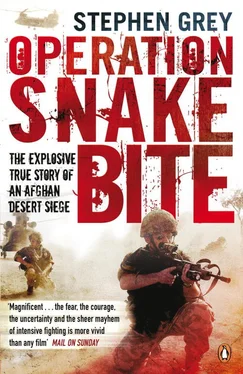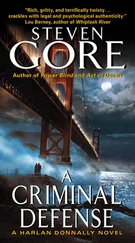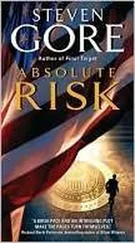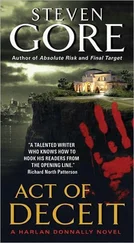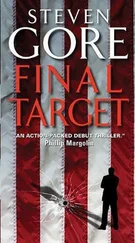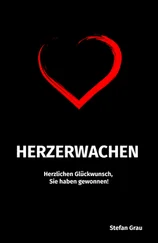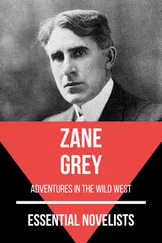Bravo Company, 1 Fury, north of Musa Qala, 11.50
1st Platoon were still in the same compound they’d been sitting in for a day and a half, the same one where they’d been attacked on the morning they arrived. After the battles they’d fought, they’d run quickly short of ammo and all this time they had been waiting for resupply and waiting for 2nd Platoon to catch up.
That lunchtime someone else decided to have another go at them, perhaps just one man sticking his weapon up and firing a few rounds. Sergeant First Class Reese remembered: ‘I could see this guy being a loser and shooting at us, so I did a little textbook move to go and sort him out.’
One soldier, Sergeant Tuyen Doan, however, ‘took an extra step on the outside where he shouldn’t have’ and caught a bullet in his arm. He was in a lot of pain and couldn’t move his hand. The medics did their work and he was moved out for a medevac chopper and, said Reese, ‘at the same time, we pushed out to go take down this guy who was being a loser. We killed him. And then, right when we killed him, we were in this big open field, so we stopped and came back and we had to wait all day long for resupply.’ It was getting frustrating.
Battalion headquarters, 1 Fury, Roshan Tower 13.36
Sometimes you get lucky, sometimes unlucky, and then sometimes someone just does something really stupid.
At 13.36, an American Chinook was coming in with a resupply that everyone in 1 Fury was sorely needing. On board was a team to take back some prisoners from Bravo Company, and also Sergeant First Class Matthew Hatfield, the senior sergeant in the 1 Fury’s forward observation team. Hatfield had spent the early battle back in Kandahar, but with the forward HQ now firmly established on Roshan Hill, it was his turn to move forward.
Everyone on the Roshan remembered that moment. All morning they’d been under fire and they had made pretty sure that everyone knew that. The supply helicopters were told to approach from the desert behind, not to fly over Musa Qala itself. That made it pretty surprising to look down to the right and see a Chinook steaming straight down the middle of the wadi – right over Musa Qala town and between Roshan Tower and the Taliban opposite.
It was even more of a shock for those on board the chopper, not least Sergeant Hatfield. The ramp was lowered at the back, and he could see all too clearly when the RPGs started whooshing in – air bursting with a boom and a black cloud of shrapnel in the air just behind. He could hear the Dushka too. The gunners in the Chinook door started returning fire, rocking up and down as the chain-belt ran through their machine guns. ‘Hey, this ain’t good,’ he thought.
Hatfield turned to the soldier next to him and shouted, ‘They gotta get this chopper on the ground. We gotta land.’ The Chinook started corkscrewing, swerving desperately to avoid the fire, banking left to get up and out of the wadi and back into the desert.
What saved them was an act of heroism. Waiting in the sky above was an Apache helicopter, call-sign Arrow 2–3. The pilot, Tim Slade, and his gunner, Thomas Malone, had spent all morning in the skies around Roshan, playing cat and mouse with the Dushka gunners. Both airmen were reservists with three weeks left of a one-year tour. In normal life, Malone was a bouncer in Tucson, Arizona. They had been over Musa Qala since 7 a.m. and already seen some strange sights – like a group of Taliban fighters jump out of a truck all dressed in women’s clothes. When they saw the Chinook flying below, it radioed to say it was taking fire from the Dushka. Slade and Malone came swooping in – putting themselves between the Chinook and the Dushka. ‘A Chinook would be more of a target because it doesn’t shoot back. So with an Apache you have to get closer than the Chinook, make yourself seem like an easier target,’ said Malone. RPGs started airbursting in front of them – little black puffy clouds of flak. They could hear nothing. ‘It feels like a video game,’ said Malone. But the move was to cost them. Two bullets struck Arrow 2–3. One hit Malone in the leg. It felt like it was blown off, ‘like somebody strapped a piece of dynamite to my leg.’ Malone’s words were preserved by a cockpit recorder. ‘I’m… My God! I’m hit, I’m hit, I’m hit! I’m shot in the leg, shot in the leg!’
The bullet had smashed Malone’s knee into the cyclic, the Apache’s main control stick. Arrow 2–3 rolled left and started plunging into a gut-wrenching groundward dive. ‘I couldn’t move my leg, so I had to grab it with my hands and pull it off the cyclic. My leg was about three times normal size – like a big blob of Jell-O.’ Slade fought to correct the roll, slamming hard on his cyclic, a move that automatically separated the two men’s controls apart and also shifted the helicopter from mechanical guidance on to computer-controlled ‘fly by wire’.
‘You all right? You all right?’ said Slade. He realized another bullet round had struck and knocked out one of their two engines. The power was dropping. They had got within 80 feet of the ground.
Malone thought the bullet must have hit an artery. He could see he was bleeding badly. He tried to wrap a tourniquet on to stop the flow. But the space was too cramped and the leg was too swollen. Every time he tried to reach down, his leg would hit the cyclic and make the chopper turn again. ‘All I could do was stick my fingers in the [bullet] hole and I just shoved my fingers in there as hard as I could and just hoped for the best.’
Slade now had the helicopter to fly, one engine to watch, and radios to work. He had to jettison their weapons in the desert to get more power. But it was slow going. An electronic clock showed a countdown of the time needed to get back to Camp Bastion, the nearest hospital – thirty-three minutes.
‘Just keep talking, keep talking,’ said Slade.
‘Hey man, I’ll let you know if I pass out.’
By the time he reached base, Malone had lost two-thirds of his blood.
On the Predator feed, Colonel Mennes and Major Jones could see the desert spot where the Apache’s weapons had been dropped. Within five minutes there were motorbikes out there to collect the loot.
‘Sir, we need to shoot those guys!’ someone said.
Mennes couldn’t tell though if they were Taliban or just looters.
‘I don’t know, I don’t like it,’ said Mennes. ‘I’m not going to shoot those people.’
Bravo Company, 1 Fury, north of Musa Qala, 15.45
Vince Corona, a sergeant from Indiana, was on point again with 2nd Platoon of Bravo Company. They were back out in the open riverbed, moving south after finally getting a resupply. Of course, after waiting so long, when it had finally come, as always, it was too much. First the British BRF had made it across the wadi at first light, driving ‘their crazy British vehicles’. And then finally a Chinook had come in, unloading two huge pallets of water and ammunition. There was so much they had to cut open half the water bottles and burn a load of ration packs. They didn’t want to leave them for the enemy.
The aim now was to link back up with 1st Platoon, dump some resupply with them and then finally move to what had been 2nd Platoon’s initial objective – right across the other side of the green zone by the main road.
It took only thirty minutes after setting off before the Taliban opened up. They had just reached level with 1st Platoon, who they saw waving from the green zone to their left. Fusco, the platoon sergeant, had by now ‘acquired’ a couple of pick-up trucks, and he’d thrown the hated quad bikes in the back, along with rucksacks, excess weapons and everything that was weighing people down. It was pretty certain they would soon be in contact. Corona had just spotted a track through the green zone that could take them over to the compound.
Читать дальше
